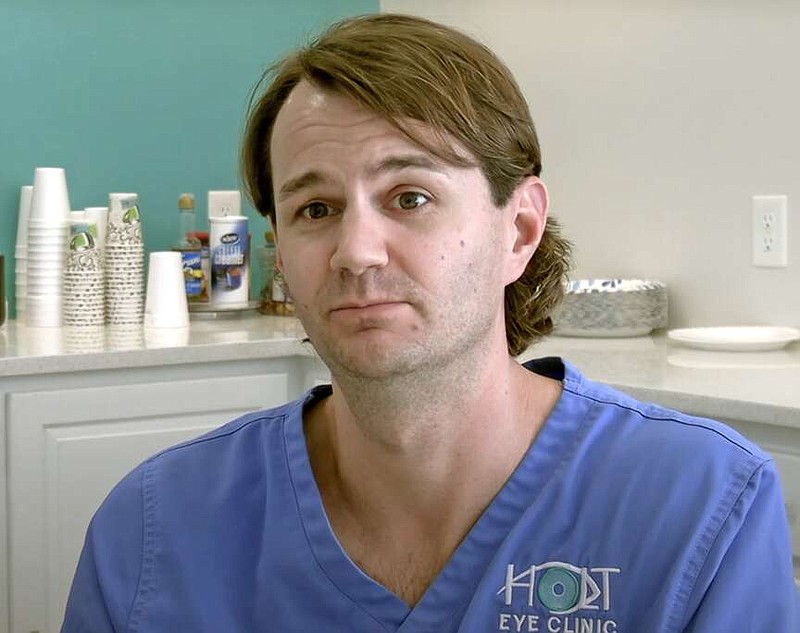With the total solar eclipse just over a week away, medical professionals want people to remember the dangers of looking at the sun without proper protection.
National Park Medical Center Chief Nursing Officer Lisa Wallace said the damage caused by looking at the sun without proper protection is permanent.
"That damage is not reversible, and I think people assume a lot when they're buying solar eclipse glasses from who knows where," she said. "It might not really be safe. We're kind of kidding, but we're kind of not. That's a bad deal, and you don't feel pain when you're doing that damage."
Dr. Annette Webb, an optometric physician with Webb Eye Care Associates in Pearcy, said eclipse glasses labeled as ISO 12312-2 are considered safe.
"If that stamp's on there, then those are approved to have sufficient filtering so that you can actually look up into that eclipse, and it will not damage the eye as long as you have those on," she said, noting welding lenses with a shade of 14 are also considered safe.
The label refers to an international standard created by the International Organization for Standardization, a nongovernmental organization comprised of "members from the national standards bodies of 167 countries," according to the American Astronomical Society's website.
Webb said anyone who thinks they might have damaged their eyes should visit their optometrist as soon as possible.
"Please seek immediate observation from your optometrist," she said. "They desperately need to be sure that you haven't caused that damage."
Dr. Jeff Holt, an ophthalmologist at Holt Eye Clinic, said there are many symptoms of eye damage caused by the sun.
"They may notice a slight decrease in vision," he said. "It's even been reported that people can have a slight headache, and they can have little wavy lines in their vision. It can happen from onset, but it can be delayed, too, depending on how long you actually are exposed to the eclipse."
Children also have larger pupils, Webb said, which makes them more susceptible to damage.
"Our pupils get smaller as we age, so their pupils are going to let in even more of that extensive UV," she said. "So kids really have the potential to have damage. Plus they can typically look around those eclipse glasses or they don't fit very good and they slide down and they have had that defect. So as a result kids are very prone and unfortunately, at risk to have damage from an eclipse."
Holt encouraged people to visit their optometrist to ensure their eyes are not damaged.
"We do expect an influx of work-ins after the eclipse, which is fine," he said. "We're glad to see patients afterwards. ... The one thing people have to realize is they could be left with a little blind spot. Your vision may be good, but you may notice a little blind spot from the area of the retina that was damaged. But long story short, yes, please just come see us. Don't flood the emergency rooms because all they're going to do is tell you to go see your eye doctor."
While there is less chance of damage being done to the eye during totality, Holt said it is still possible.
"I would still wear them even after the time of totality is done just because solar retinopathy can be caused from just regular sun exposure as well," he said. "It's rare, and it's because people will just stare at the sun for minutes and minutes. So if that's the case, please just keep wearing those glasses even after the totality has happened."
